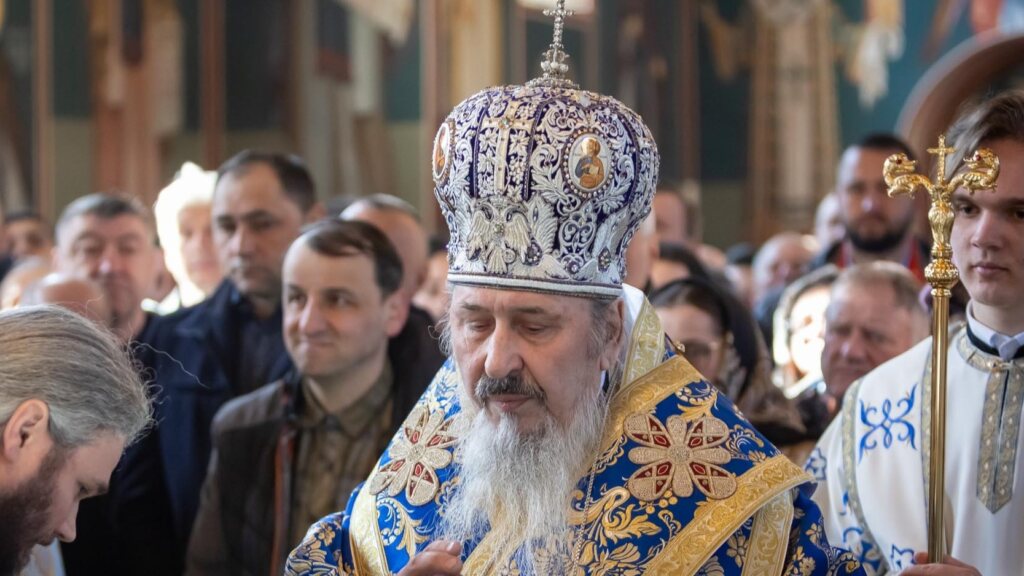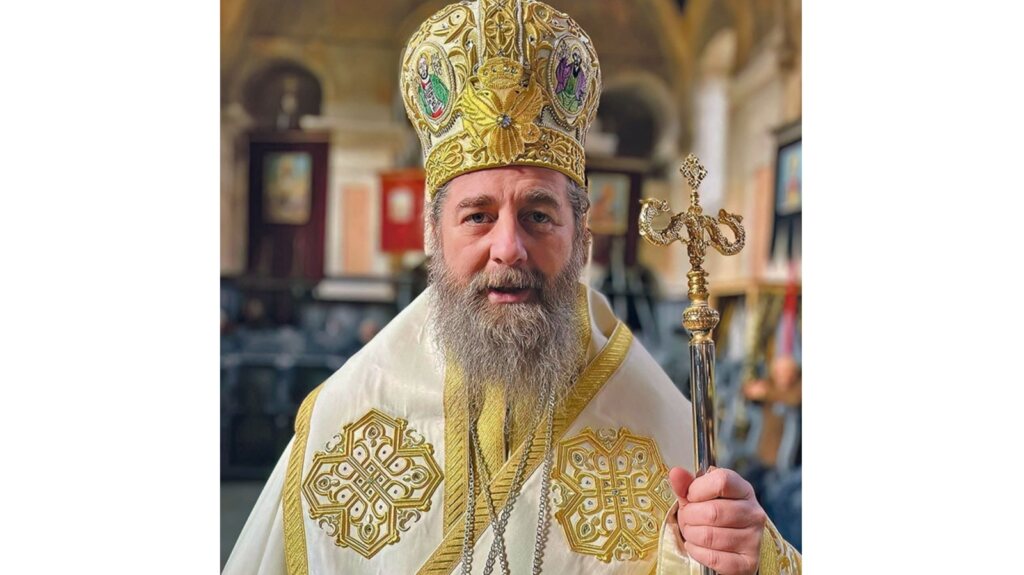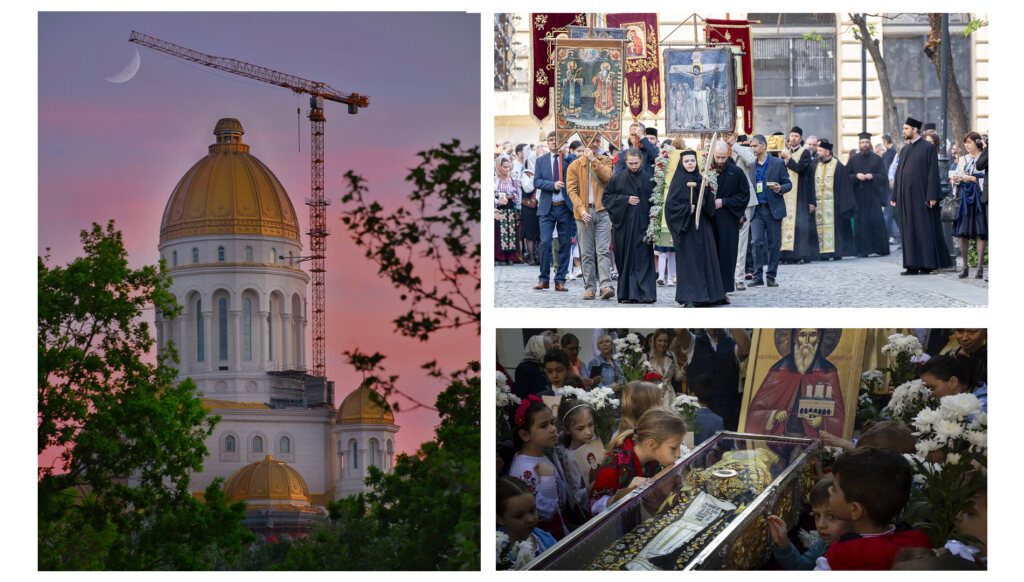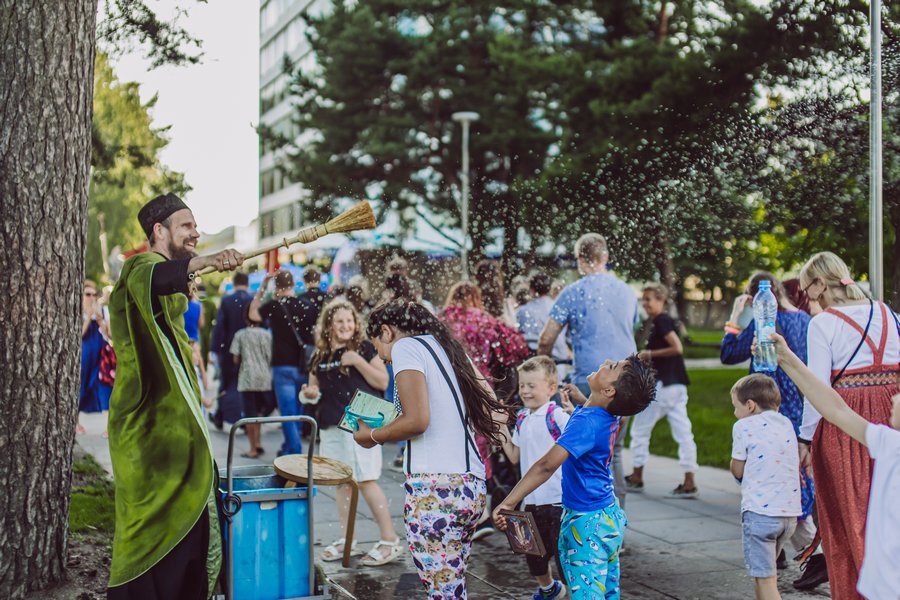In an interview published on the diocese’s website, Italy’s Romanian Bishop Siluan shares his thoughts on how the pandemic changed the life of the bishops, clergy and believers on the Peninsula. Adaptation, prayer, hope, eternal life are the keywords in the interview.
Bishop Siluan referred to the loss of jobs and the pastoral methods that tried to help those affected, including spiritual means and material help.
“Right from the beginning of the pandemic, when I recommended the use of spiritual means — holy water, holy oil, partaking the Body and Blood of the Lord, prayer, the sign of the Cross — these seemed to some to be naive, childish, medieval recommendations.”
“But the experience of the Church is not medieval, but bimillennial. There have been plagues in the past, and our forefathers used spiritual and divine means, at a time when there were no drugs or the issue of a vaccine or an operation, but it was only recommended to stay at home,” His Grace stressed.
Bishop Siluan argued that although medicine has evolved, it has been shown that managing this pandemic “is not that simple.”
“Even if there are different opinions and currents – whether it is real or not – with positive, negative people, however, in Italy, there are over eighty thousand victims, not to mention other countries. You have to realize that there are tens of thousands of bereaved families, and this deserves to be taken into account. I have friends, both here and in Romania, who died of the plague,” he said.
Another aspect highlighted by the Romanian Orthodox Bishop of Italy was that the pandemic reminded us of our death.
“I think we forgot that death is so close to us and possible. It is cynical for us young people to say: it does not affect us, but only the elderly! Wait, but don’t you have a mother, don’t you have a father? Don’t you have grandparents? Are the elderly to be thrown away, or what do we do with them? As the popular saying goes: Who has no elders should buy some! It does not mean that we stay calm; if the older people die, it will be less concerned. Woe to us if we have no elders! But young people are also dying.”
Bishop Siluan insisted on church organization – prayer, connection with people, social help, material support, charity – and keeping the rules.
“I have to think about the other one! Even if one is a follower of a negative current. That person has an opinion; freedom of opinion is indisputable. But I am a Christian in the first place or a priest. I respect the principles that are taught to me to be observed. I do not preach personal opinion; I do not promote it. I preach Christ and the order we are in, as St. Paul says, the Church is of the order and not of the disorder.”
“I am honestly more afraid of endangering someone than of being endangered. I can be endangered, but that means I’m taking the risk, but it’s harder to assume I’m endangering someone else. In a way, the priest and the doctor are put to protect the mental and physical health of the people, and even they can expose them.”
The purpose of the Christian’s life remains salvation and eternal life.
“The plan of salvation has priority, the thought that my whole life is not here, that it is eternal beyond; the fact that I am working on my salvation and my first concern is salvation, beyond health. Sick or healthy, I want to be saved. Then our program does not change; it does not depend on others.”
“We must not slip into an excessive fear of a virus that, yes, makes many victims, but it is not the only deadly disease in the world. I would add that if we know how to protect ourselves from it, we guard ourselves, but at the same time, we put our lives in God’s hands.”
“The faithful man believes in God’s help, but that does not mean that he then comes out without a mask and has no fear, touches everyone and has no problems. No. Although I am a believer, I keep the sanitary and hygiene principles, and I do not let fear settle in my heart.”
The bishop pointed out that the world we live in would like everything to be solved “by outside intervention, without me changing or changing anything in the way I live”.
“It’s as if the patient can think he’s healthy again only through medication, without changing his lifestyle – although he became ill due to a deficiency in the lifestyle, in principle (maybe there are other cases). He is fooling himself. “
The solution proposed by the hierarch for a renewal of humankind is repentance.
“We believe and confess that without the change of life and the principles of life, the atmosphere in the soul, mind and heart of man cannot change; otherwise I begin to breathe the same air and feed on the same food and nothing changes.”
“But if I change something in my life, this, in church language, is called repentance. Repentance means returning to the original settings (as they say in telephone language), that is, to the principles sown by God in our nature, through Baptism. We betray them with our words, our deeds, our thoughts, our eyes, our attitudes, our desires, our imaginations.”
Photo: Lumina Newspaper
Follow us on Twitter: @BasilicaNews






